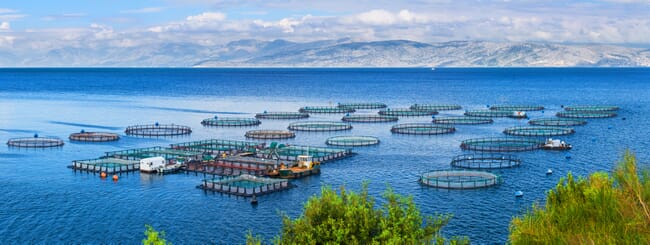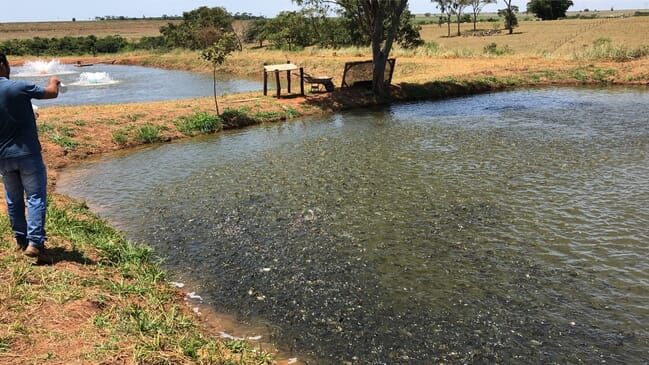When it comes to the business of seafood, Covid-19 hasn't been nearly as damaging as the ecological havoc caused by humans, a recent global survey of fish farms found.

More than 80 percent of the 585 fish farms surveyed worldwide reported that the economic losses from human-caused issues such as climate change, pollution, and flooding far outweigh losses from supply-chain hiccups or a loss in buyers caused by the pandemic.
The survey findings – highlighted in a report co-authored by Brian Helmuth, professor of marine and environmental science at Northeastern University – offer a stark look into the devastating impact global warming is already having on oceans, lakes, and rivers across the planet.
"These businesses have to build resilience to these events in their planning, because it's only going to get worse over time," says Helmuth.
The additional economic losses triggered since the 2020 start of the pandemic should serve as a wake-up call for fish farmers across the world, says Helmuth, because they will face additional hurdles amid an escalating climate crisis.

"We're going to have more pandemics. We're going to have increasing impacts of climate change. New England is ground zero for a lot of these changes, and so we really have to get our act together now," says Helmuth.
The global study, published this month, assessed the impact of COVID-19 on fish farms in more than 50 countries. The 585 fish farms that responded to the survey detailed losses in stock, sales, and jobs as a result of Covid-19. Nearly 490 of those respondents said pollutants, diseased fish, and other human-caused climate problems caused more losses than the economic downturn triggered by the pandemic or supply-chain snarls.
Another major finding from the survey, says Helmuth, is that it highlights a farming method that could be a blueprint for resilience as seafood farmers grapple with the impacts of climate change for years to come.
"What's interesting is that more ecologically-sustainable approaches were more resilient, in part because one of the stoppages in the supply chain was getting food to feed the things you're trying to grow," says Helmuth.
Helmuth found that integrated multi-trophic aquaculture (IMTA) showed more resilience in the face of climate and pandemic shocks.
"This means you've got a couple different organisms all eating each other. But it builds a self-sustaining approach, and it means the farm is a lot more stable against Covid-19 or any other global event that could disrupt the supply chain," says Helmuth.




